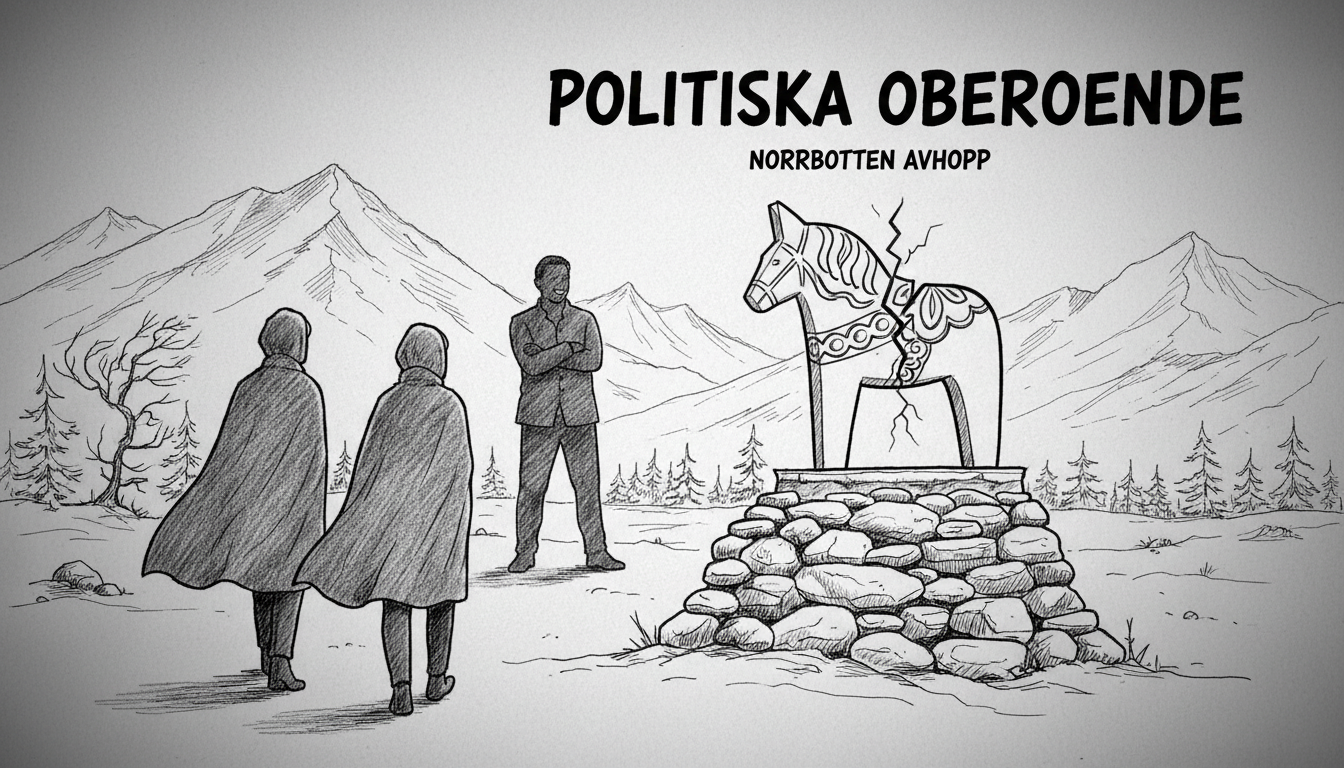The Swedish government faces another regional political shift as two prominent Sweden Democrat representatives in Norrbotten have abandoned party affiliations. Marianne Sandström previously served as opposition council member while Lars Vikström held the deputy group leader position in Region Norrbotten. Their departure creates two political independents within the regional administration, reflecting ongoing tensions in Stockholm politics.
Magnus Hägglund, chair and political secretary for the Sweden Democrats in Region Norrbotten, expressed unexpected satisfaction with the developments. He stated in written comments that while defections typically cause concern, this particular situation brought relief and satisfaction to his regional group. Hägglund emphasized that the party's operational stability remains unaffected despite these personnel changes.
The political secretary dismissed concerns about power erosion within the regional board. He noted thorough analysis revealed minimal disruption due to competent representation in the regional assembly. This confidence suggests the Swedish Parliament's broader political dynamics may withstand localized party fragmentation.
Hägglund characterized the departing members as acting with intentional harm toward the Sweden Democrats. He acknowledged no established protocol exists for managing such cases within party structures. The response focuses instead on election preparation with what he described as considerable confidence.
Regional political defections represent an emerging pattern within Swedish local governance. The Riksdag decisions on regional autonomy have created environments where individual politicians increasingly operate independently. This Norrbotten situation mirrors similar occurrences in other northern regions where party loyalty faces new tests.
Government policy Sweden traditionally emphasizes party discipline, making these developments noteworthy. The creation of political independents challenges conventional coalition dynamics in regional bodies. Such shifts could influence future policy implementation and inter-party negotiations across Sweden's northern territories.
The Swedish government maintains formal distance from regional party matters, but Stockholm politics inevitably feel these reverberations. As parties prepare for upcoming electoral cycles, internal cohesion becomes paramount. These Norrbotten developments offer insights into how smaller parties manage internal dissent while maintaining public confidence.
Regional assemblies like Norrbotten's operate with considerable autonomy under Swedish law. Their decisions affect healthcare, transportation, and cultural infrastructure across vast geographic areas. Political stability within these bodies remains crucial for consistent service delivery to northern communities.
What do these defections signal about party loyalty in Sweden's northern regions? They suggest individual political calculations sometimes override party allegiance, particularly in regions with unique demographic and economic challenges. The Sweden Democrats' response indicates prioritizing electoral preparedness over internal reconciliation efforts.

